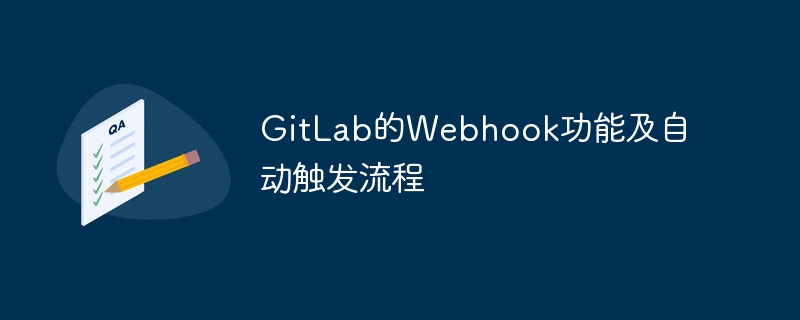

GitLab's Webhook function and automatic triggering process
With the rapid development of software development, source code management tools have become an indispensable tool for the development team. As a popular source code management tool, GitLab not only provides powerful version control functions, but also provides Webhook functions for automatic triggering and integration of code.
1. What is Webhook
Webhook is a kind of HTTP callback. When a specific event occurs, certain operations are triggered by sending an HTTP request to the specified URL. In GitLab, Webhooks can be used to automatically trigger and integrate code. When a specific event occurs in a warehouse in GitLab, such as code push, merge request, etc., GitLab will send an HTTP request to the preset URL to trigger related operations.
2. Set up Webhook in GitLab
3. Code Example
The following is a simple code example to receive HTTP requests sent by GitLab and perform related operations.
from flask import Flask, request, jsonify
app = Flask(__name__)
@app.route('/webhook', methods=['POST'])
def handle_webhook():
event = request.headers['X-GitLab-Event']
data = request.get_json()
if event == 'Push Hook':
branch = data['ref']
commits = data['commits']
# 在这里执行自定义的代码操作
return jsonify({}), 200
if __name__ == '__main__':
app.run(host='0.0.0.0', port=8080)In the above code, we use Python's Flask framework to receive HTTP requests sent by GitLab by creating a route '/webhook'. When receiving a request triggered by the Push Hook event, we can obtain relevant information from the request data, such as the pushed branch and submitted code. Here, we can perform some custom code operations, such as automatically running tests, deployment, etc.
4. Automatic triggering process of Webhook
By configuring GitLab's Webhook function, we can realize automatic triggering and integration of code, improving development efficiency and code quality.
Summary
This article introduces GitLab's Webhook function and automatic triggering process, and provides a simple code example. By using GitLab's Webhook function, we can achieve automatic triggering and integration of code, improving development efficiency and code quality. At the same time, we can also customize related operations according to specific needs. I hope this article will help you understand GitLab's Webhook function.
The above is the detailed content of GitLab's Webhook function and automatic triggering process. For more information, please follow other related articles on the PHP Chinese website!




